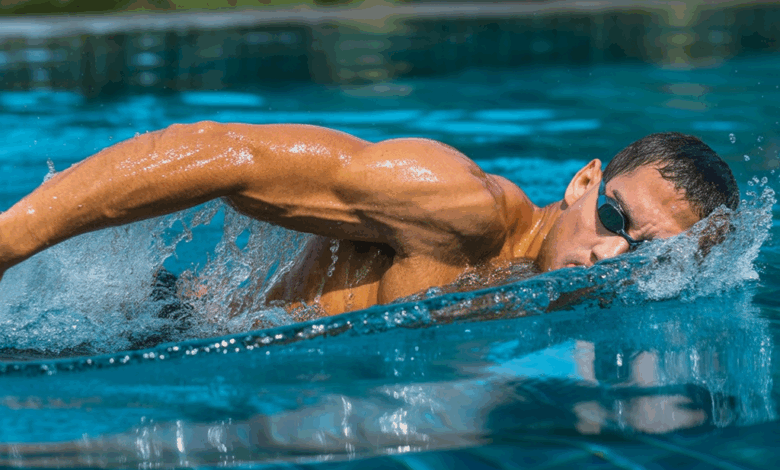Creatine for Swimmers: Boost Your Performance and Endurance in the Pool

Have you ever wondered how some swimmers seem to slice through the water with explosive power and lasting endurance? Whether you’re training for your next swim meet or just trying to beat your personal best, the secret may lie in a simple supplement many overlook: creatine. But is creatine really beneficial for swimmers? Let’s dive into how this natural compound could take your swim performance to the next level.
What Is Creatine and How Does It Work?
Creatine is a naturally occurring compound found in muscle cells. It helps produce energy during short bursts of intense activity — like sprinting or powering through a fast 50-meter swim. By increasing the stored phosphocreatine in your muscles, creatine allows for quicker energy replenishment during those high-intensity moments.
Although creatine is often associated with weightlifters and sprinters, swimmers can also benefit from its effects, particularly in sprint distances and short power sets during training.
Why Swimmers Should Consider Creatine
Enhances Explosive Power
Swimming requires quick bursts of energy, especially in starts, turns, and sprint finishes. Creatine supplementation can improve the ability to generate powerful strokes and rapid starts, helping swimmers shave precious seconds off their time.
Improves Recovery and Endurance
Besides boosting power, creatine aids in faster recovery during and after high-intensity swim sessions. It helps reduce muscle fatigue by replenishing ATP stores, enabling you to maintain high effort throughout repeated sets or long training sessions.
Supports Muscle Growth and Strength
Swimming places unique demands on muscles, particularly in the shoulders, arms, and core. Creatine can enhance muscle mass and strength gains when combined with dryland strength training — a crucial element for swimmers looking to improve stroke power and injury resilience.
How to Use Creatine Safely for Swim Training
Before starting supplementation, consult a healthcare professional or sports nutritionist, especially if you have underlying health conditions. Once cleared, here’s a practical guide to incorporating creatine into your routine.
Loading Phase (Optional)
- Take 20 grams of creatine daily, divided into 4 doses, for 5-7 days.
- This phase rapidly saturates your muscles with creatine but is optional.
Maintenance Phase
- Consume 3-5 grams daily to maintain elevated creatine levels.
- Take with a carbohydrate-rich drink post-workout to enhance absorption.
Hydration Is Key
Creatine can cause water retention in muscles, so it’s important to stay well-hydrated, especially if you’re training in the pool or doing dryland workouts.
Sample Workout Variations to Maximize Creatine Benefits
To truly capitalize on creatine supplementation, pair it with targeted workout routines focusing on power and endurance.
Power-Focused Swim Sets
- 8 x 25 meters sprints at maximum effort, with 1:30 rest intervals
- 6 x 50 meters explosive butterfly or freestyle sprints, 2 minutes rest
- 4 x 100 meters freestyle intervals at 85-90% effort with 3 minutes recovery
Dryland Strength Training
- Weighted pull-ups and push-ups – 3 sets of 8-10 reps
- Medicine ball rotational throws – 3 sets of 12 per side
- Core circuits including planks, Russian twists, and leg raises
Nutrition Tips for Swimmers Taking Creatine
Proper nutrition complements creatine supplementation and maximizes swim performance:
- Prioritize Protein: Support muscle repair with lean sources like chicken, fish, beans, and tofu.
- Carbohydrates: Fuel your swim sessions with whole grains, fruits, and vegetables to replenish glycogen.
- Hydration: Drink plenty of water before, during, and after swim training.
- Avoid Excess Caffeine: High caffeine intake may counteract creatine’s benefits.
Real-World Examples: Creatine Success Stories with Swimmers
Consider Olivia, a collegiate swimmer who incorporated creatine into her regimen. Within weeks, she noticed increased leg drive off the walls and less fatigue during repeated sprint sets. Similarly, Mark, a masters swimmer, credits creatine with helping him regain strength and pace for his favorite 100-meter butterfly event.
Of course, individual results vary, but many swimmers find creatine a valuable tool when combined with discipline and balanced training.
Frequently Asked Questions About Creatine for Swimmers
While creatine is generally safe for adults, it’s best to consult a pediatrician before teenagers use it. Proper hydration and dosage are essential to avoid side effects.
Creatine may cause temporary water retention in muscles, leading to slight weight gain. This is normal and not fat gain. It usually stabilizes after consistent use.
Most swimmers notice performance improvements within 1-2 weeks of consistent creatine use, especially if a loading phase is used.
Conclusion: Should You Add Creatine to Your Swim Training?
If you’re a swimmer aiming to boost explosive power, improve recovery, and increase strength, creatine could be a smart addition to your training toolbox. Remember, it works best paired with structured workouts and balanced nutrition. As always, listen to your body and consult professionals to create a tailored plan.
Ready to enhance your swim routine with scientifically backed strategies? Check out our detailed workout routines and nutrition guides to complement your progress. Dive in today and make every stroke count!





